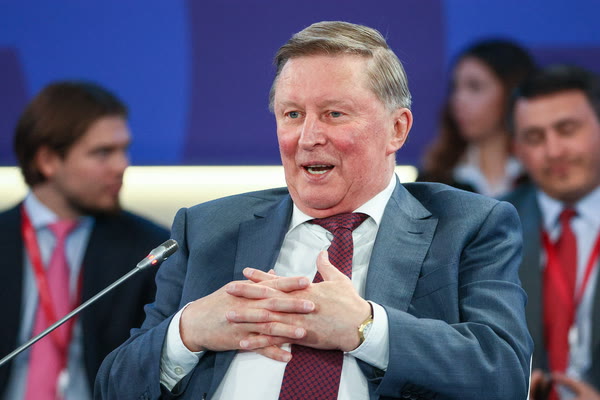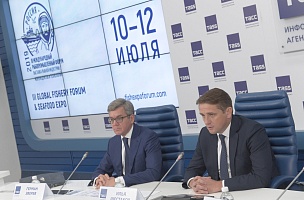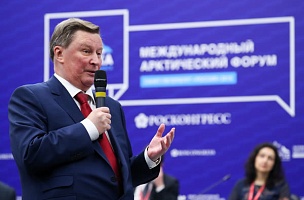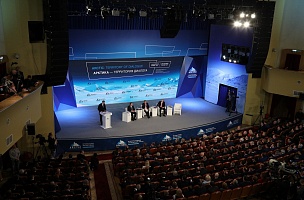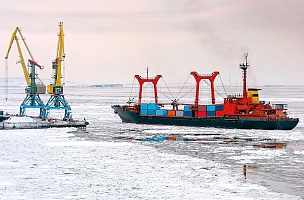Key conclusions
Preservation and protection of wildlife is impossible without the help of business
“Business by our example shows a very responsible attitude towards the conservation of rare animals. It is correct to say that here, of course, we need to be involved in the economy very closely,” Konstantin Chuychenko, Minister of Justice of the Russian Federation.
“Large companies are willing to sponsor. One of the reasons, it seems, is that more and more companies are appearing in Russia, especially large ones, that seriously think about their reputation, which was not the case before. And the reputation of any large company, no matter from which country, is formed, among other things, from charity. And especially people like it when they invest in the protection of nature and wildlife. This is true all over the world, not only in Russia. And I can only thank them for that very much,” Sergei Ivanov, Special Representative of the President of the Russian Federation on Environmental Protection, Ecology and Transport.
“All the results achieved over the past at least 10 years, of course, could not be possible without the full support of the Board of Trustees. Let me remind you that Sergei Borisovich [Ivanov] and Konstantin Anatolyevich [Chuychenko] are members of the Board of Trustees, and Viktor Feliksovich [Vekselberg] too. Thanks to donations, including from the Renova Group, the Russian Geographical Society is able to carry out such projects and is doing them,” Artyom Manukyan, Vice President, Executive Director, Secretary of the Governing Council, Russian Geographical Society.
“We are inviting business, and this is the reputation, as Sergey Borisovich said, of business. And this is also participation in this global ESG agenda. With this, we offer businesses to come to our region,” Oleg Khorokhordin, Head of the Altai Republic.
We need to work to protect the entire natural environment, not just popular wild animals
“We realized that in order to protect tigers, we need to protect their habitat, because tigers do not exist autonomously. They live in the forest, in a certain climatic environment, and the habitat affects the state of tiger population. Besides, even though the tiger is at the top of the food chain, it is still part of it. And that means it is also dependent on the welfare of other animals,” Konstantin Chuychenko, Minister of Justice of the Russian Federation.
“The tiger or the leopard do not live by themselves. It is necessary to preserve all nature, from acorns to Siberian dwarf pines that provide a food base, that's the whole chain. Because the tiger and the leopard are the top of the pyramid. But if there is no base of the pyramid, there will be no top. Nature must be preserved in its entirety, and not just the animal itself,” Sergei Ivanov, Special Representative of the President of the Russian Federation on Environmental Protection, Ecology and Transport.
“We set the development of ecology, the environment as a vector. This includes the preservation of the environment, the preservation of our endangered species, the snow leopard,” Oleg Khorokhordin, Head of the Altai Republic.
“We began to treat the concept of “ecology” in a completely different way. We began thinking seriously about how we live and where we live 15–20 years ago. I do agree with what was said earlier about the tiger and the leopard being just the top of the pyramid of biological diversity, which creates the health of the entire civilization on earth. If we do not learn how to protect the animals that live next to us, at some point people will face the question of their own survival,” Viktor Vekselberg, Chairman of the Board of Trustees, Skolkovo Institute of Science and Technology (SkolTech); Chairman of the Board of Directors, Renova Group.
PROBLEMS
Waste of funds persists in environmental philanthropy
“We are aware of such facts when some organizations, let's say, with an international colouring, are trying to build infrastructure, and then transfer it to our reserves. At the same time, the expenses that they claim are significantly higher than the acceptable and economically justified standards. We have examples when they tried to transfer three huts for RUB 70 million (they called it a recreation centre) to a natural reserve. Or when they tried to transfer a reintroduction centre worth RUB 20–30 million to a reserve, claiming it costs over 300 million. This means that the natural reserve is supposed to claim the expenses, set to price of this property and pay taxes accordingly,” Konstantin Chuychenko, Minister of Justice of the Russian Federation.
“When Sergei Vladilenovich [Kiriyenko] headed Rosatom, he publicly said at a forum in Vladivostok that the best audit reports come from the Tiger Conservation Fund and the Land of the Leopard. Because we report everything down to the kopeck, what the money was spent on. We do that, so that the people who donated the money could see how their money was spent. You cannot just say “to protect nature”, those are empty words,” Sergei Ivanov, Special Representative of the President of the Russian Federation on Environmental Protection, Ecology and Transport.
SOLUTIONS
It is necessary to improve legal regulation in nature protection
“We need to change the current legislation in terms of corporate governance. We will talk about this at the Legal Forum. But I would like to talk about the reporting of non-profit organizations, including those in the economic sphere. Sergei Vladimirovich [Aramilev] and I decided that we would publish our next annual report: how much money we received and how we spent it. <...> We are not ashamed to do this, and we will publish it on a voluntary basis. And in the future, I think, it is necessary to introduce the law that requires organizations that are engaged in the protection of nature and in the protection of rare wild animals, to publish their reports, because this is very important,” Konstantin Chuychenko, Minister of Justice of the Russian Federation.
“I would be tougher and more exacting in compliance with environmental regulations. Not through the prism of encouragement, but exactly the opposite – the most severe punishment for violating these rules. I will say this again, over the past 15–20 years we have achieved a lot; and there are national projects that are aimed at achieving these goals. You can’t deviate from the priorities that we have outlined,” Viktor Vekselberg, Chairman of the Board of Trustees, Skolkovo Institute of Science and Technology (SkolTech); Chairman of the Board of Directors, Renova Group.
“The fines for environmental damage are ridiculous or really small. And they need to be raised. I will give some examples. For many years I fought in an unequal struggle with commercial interests to ban the export of round timber from the territory of the Russian Federation. Illegal loggers, forest fires. We are surprised that we have so many fires every year. One of the reasons is arson by the same loggers, who, according to the law, must clear logging waste. But who wants to do it, it’s easier to set it on fire and that’s it, it will burn down – and goodbye. Finally, it happened,” Sergei Ivanov, Special Representative of the President of the Russian Federation on Environmental Protection, Ecology and Transport.
We need to invest in infrastructure projects to protect wildlife
“Forest fires are the scourge of the Far East in general, a terrible scourge. There are no fires in the national park now thanks to additional investments. Everything around the national park is blazing, while here we are creating mineralized strips, investing money. Transport – we built the first ecological tunnel in Russia, which is good for animals and drivers equally,” Sergei Ivanov, Special Representative of the President of the Russian Federation on Environmental Protection, Ecology and Transport.
“First of all, it is necessary to support infrastructure projects. This means that we need to create new protected areas, open ecotunnels that will help minimize the anthropogenic impact on the life of wild animals, and their migration routes. We also need to develop unified environmental structures in the Russian regions,” Artyom Manukyan, Vice President, Executive Director, Secretary of the Governing Council, Russian Geographical Society.
“Today, ecology is a new economy, and we are following this vector. We are developing a regenerative economy. In the Republic of Altai, 300 days out of 365 a year, are sunny. And we are developing solar energy. <...> We have eight stations, 120 megawatts of power, we consume 100 megawatts in winter, 50 in summer. We use our own solar energy during the daylight hours. We are not planning to build large industrial enterprises, we never had such plans. We plan to develop solar energy, we plan to develop an organic agro-industrial complex, and we are also developing ecotourism at a very fast pace,” Oleg Khorokhordin, Head of the Altai Republic.
For more information, visit the Roscongress Foundation’s Information and Analytical System at roscongress.org/en


